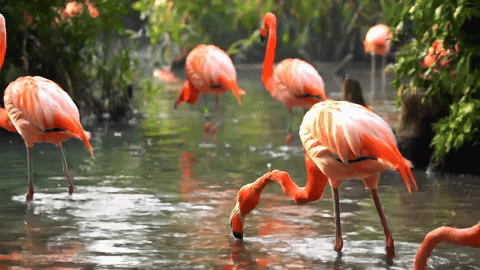Google just announced Veo 2 — its advanced AI video model to take on Sora

Google has been busy over the past week with a flurry of new AI announcements including the impressive Gemini 2, Deep Research and new NotebookLM features.
Now it's the turn of the more creative side of the search giant. DeepMind has unveiled a new version of its Veo video model. First announced at Google I/O earlier this year, Veo is a direct competitor to OpenAI's Sora to be one of the best AI video generators.
Veo 2 brings with it improvements in visual realism as well as a better understanding of physics, ensuring movement is more accurately depicted. This is similar to updates made by Pika Labs in its new Pika 2.0 model.
According to Google, Veo 2 achieves state-of-the-art results when compared to other leading models, especially when it comes to human expression.
The model is available to try in VideoFX and a new lab experiment called Whisk that lets you visualize ideas using AI. It will also be available to developers and enterprise on Google Cloud.
How is Veo 2 different?
Google claims Veo 2 can understand real-world physics. This is something of a holy grail for AI video models and an area even the best struggle with, including Sora from OpenAI.
I haven't tried Veo 2 myself but the videos shared by Google — including one showing bees surrounding a beekeeper — suggest they may have solved the problem.
Get instant access to breaking news, the hottest reviews, great deals and helpful tips.
Veo 2 also has an understanding of different camera types. This is something image models have had for a while, and can be used effectively.
According to Google you can: "Suggest '18mm lens' in your prompt and Veo 2 knows to craft the wide angle shot that this lens is known for," adding you can also put "shallow depth of field" to blur out the background.
Veo 2 can generate clips up to a minute long and in 4k resolution. It has been trained on the "language of cinematography" and Google claims you'll get fewer extra fingers and unwanted objects.
Veo 2 has been added to VideoFX but the service is still operating a waitlist. It is also going to be added to YouTube Shorts in the future to allow for AI content creation on the video platform.
More from Tom's Guide
- I got early access to LTX Studio to make AI short films
- I just tried the new Assistive AI video tool — and its realism is incredible
- Meet LTX Studio — I just saw the future of AI video tools that can help create full-length movies

Ryan Morrison, a stalwart in the realm of tech journalism, possesses a sterling track record that spans over two decades, though he'd much rather let his insightful articles on AI and technology speak for him than engage in this self-aggrandising exercise. As the former AI Editor for Tom's Guide, Ryan wields his vast industry experience with a mix of scepticism and enthusiasm, unpacking the complexities of AI in a way that could almost make you forget about the impending robot takeover.
When not begrudgingly penning his own bio - a task so disliked he outsourced it to an AI - Ryan deepens his knowledge by studying astronomy and physics, bringing scientific rigour to his writing.










